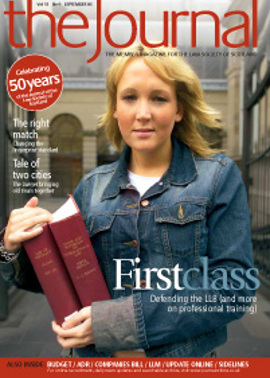How fair is fair?

Since October 2004, all employers have been required to follow statutory minimum disciplinary and dismissal procedures set out in the Employment Act 2002 (Dispute Resolution) Regulations 2004. However, recent decisions of the Employment Appeal Tribunal (EAT) have issued conflicting guidance on whether or not an employer is obliged to go beyond the statutory minimum requirements for a dismissal to avoid a finding of unfair dismissal.
The regulations require a minimum three-stage dismissal procedure. The employer must:
- set out in writing the grounds on which dismissal is considered and invite the employee to a meeting to discuss the matter;
- after the meeting, confirm the decision in writing and offer a right of appeal;
- if the employee appeals, hold a further meeting and confirm the final decision in writing after the appeal meeting.
The effect on Polkey
If this procedure is not followed, a dismissal will be automatically unfair. The employee will be entitled to a basic award of, in most cases, not less than four weeks’ pay (capped at £290 per week), and a compensatory award increased by between 10% and 50% to mark the employer’s failure. However, in this situation the well known case of Polkey v A E Dayton Services Ltd continues to apply, and where the employer can show that there was a likelihood of the employee being dismissed in any event, e.g. for misconduct or unavoidable redundancy, compensation will be reduced, sometimes to nil.
One of the new rules introduced in 2004 was s 98A of the Employment Rights Act 1996. This applies when an employer follows the statutory minimum procedures but fails to comply with other procedural steps. In that situation, Polkey is reversed: where an employer can show that an employee would have been dismissed even if other procedural requirements had been followed, the dismissal will be deemed fair and no compensation will be payable.
However, in a series of recent decisions, the EAT has reached inconsistent conclusions on the interpretation of s 98A. The confusion is over whether the section excuses an employer from any additional procedural requirements over and above the statutory minimum procedures, such as those contained in the ACAS Code of Practice on Disciplinary and Grievance Procedures, or whether it merely excuses failure to follow an employer’s internal policies and procedures.
The new decisions
In Pudney v Network Rail Infrastructure, the EAT, chaired by HHJ McMullen QC, held that there had been a breach of the elementary principle of justice when evidence was not disclosed to the employee, in breach of the standards set out in the ACAS Code of Practice, and that a dismissal would not be automatically fair simply because the employer had followed the statutory procedures. It reasoned that the principles of equity and substantial merits are over-arching, and the primary function of an employment tribunal is to determine whether a dismissal was fair or unfair in all the circumstances.
In Mason v Governing Body of Ward End Primary School, HHJ McMullen reiterated and expanded on these views, holding that for a dismissal to be fair an employer must comply with the statutory minimum procedures and also meet general standards of reasonableness. This means that a dismissal is potentially unfair even if an employer complies with the statutory procedures. It was held that s 98A excuses an employer from a failure to comply with its own more detailed procedures, but not from its duty to act reasonably in all the circumstances and to comply with the ACAS standards.
However, in Alexander v Bridgen Enterprises, the EAT, chaired by HHJ Elias, held that Pudney was wrongly decided. If an employer complies with the statutory procedures, it is excused from any other procedural requirements, whether internal or those in the ACAS code, and a dismissal will be found to be fair (assuming there is a fair reason). Coincidentally, Alexander and Mason were decided on the same day, so neither decision analyses the other’s reasoning.
These decisions leave us in the very unsatisfactory position of having two well reasoned but opposing approaches to an important aspect of the new rules.
Until the conflict is resolved in a higher court, employers would be advised to err on the side of caution. The decisions of HHJ McMullen suggest that employers are bound by an overarching duty to act reasonably when conducting disciplinary and dismissal procedures. It is therefore equally important to ensure that the statutory procedures are followed, and that disciplinary procedures comply with general standards of fairness over and above these requirements. In most cases, this will require employers to have regard to the ACAS code, and to think carefully about the substantive fairness of the procedures followed. There is a real risk that merely paying lip service to the statutory procedures will result in an adverse decision.
Alison Gow, Partner and Head
of Employment Group, Semple Fraser LLPe
In this issue
- Sincere thanks are due
- From the grass roots
- Training solicitors and teaching law
- Survival of the fittest?
- A new print job
- Plenty more besides
- That's settled, then
- East meets west
- A shot in the arm
- Tapping into CPD Online
- Master trainee
- Glitch hunt, not witch hunt
- A caveat on witnesses
- Victories for tenants?
- On your marks...
- Big bill for business
- Ripple effect
- How fair is fair?
- Scottish Solicitors' Discipline Tribunal
- Website reviews
- Book reviews
- Spinning plates
- Sending the right signals






